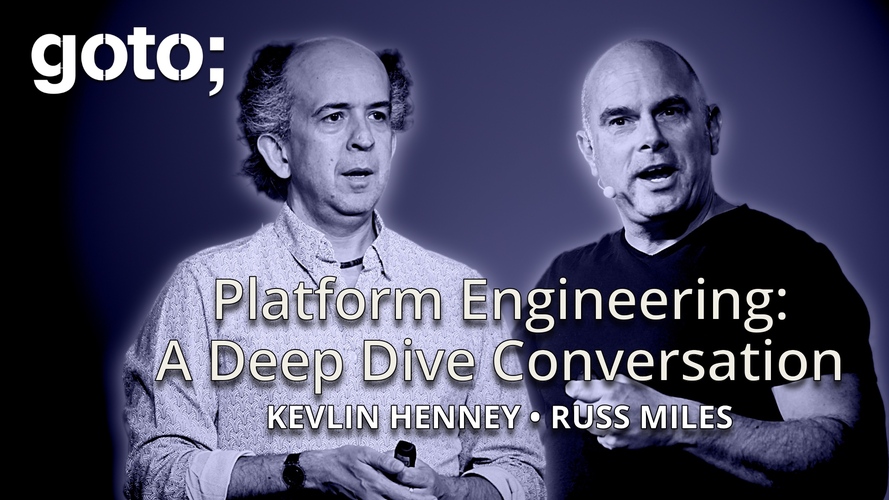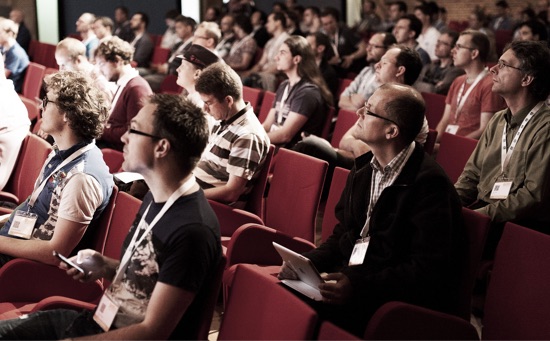Kevlin Henney
Independent consultant, speaker, writer and trainer
Kevlin Henney
Independent consultant, speaker, writer and trainer
Kevlin Henney is a GOTO legend with more than 500k views on the GOTO Youtube channel.
He's an independent consultant, trainer, reviewer and writer best known for being the author of two volumes in the Pattern-Oriented Software Architecture series and editor of 97 Things Every Programmer Should Know and 97 Things Every Java Programmer Should Know.
Kevlin's development interests are in programming, people and practice. He has been a columnist for various magazines and web sites, a contributor to open source software and a member of more committees than is probably healthy (it has been said that "a committee is a cul-de-sac down which ideas are lured and then quietly strangled"). Kevlin also boasts over 500K views on the GOTO Conferences YouTube channel and is a contributor to the Modern Software Engineering YouTube channel.
He has written on the subject of computer programming and development practice for many magazines and sites, including Better Software, The Register, C/C++ Users Journal, Application Development Advisor, JavaSpektrum, C++ Report, Java Report, EXE and Overload.
One of our favorite quotes by Kevlin: "Less code = less bugs"
Topic focus: Programming, people and practice
Check out some of Kevlin’s past talks:
- GOTO Chicago 2018 - Old Is the New New
- GOTO Amsterdam 2017 - Code as Risk
- GOTO Copenhagen 2016 - Small Is Beautiful
A few of Kevlin’s books:
Content featuring Kevlin Henney

Old Is the New New

Code as Risk

Software Is Details

Book Club interview ft. Hannah Fry & Simon Singh, moderated by Kevlin Henney

#FAIL

Structure and Interpretation of Test Cases

Hydrogen Power: How Far Will It Take Us?

Expert Talk: Agile Sabotage?

Expert Talk: Scaling Down Complexity in Software

A Fireside Chat with Hannah Fry, Simon Singh & Kevlin Henney

Expert Talk: Web Development & Its Failures

Modern Software Practices in a Legacy System

Expert Talk: Cloud Chaos & How Contract Tests Can Help

Expert talk: Managing Complexity in Software

Craftsmanship: Code, Guitars & Tech

Simplicity & Complexity: The Beauty & the Beast?

#FAIL

97 Things Every Java Programmer Should Know

The Past, Present & Future of Programming Languages

Live interview

Live interview

Ye Cannae Change the Laws of Physics

The Way the Future Was

Wibbly-Wobbly, Timey-Wimey Stuff

Architecture with Agility Masterclass

Software Architecture in the 2020s

Architecture with Agility

Live Ask Me Anything with Kevlin Henney

Architecture with Agility Masterclass Taster
Past masterclasses featuring Kevlin Henney
Keeping It Simple | GOTO Copenhagen 2025
Architecture with Agility | GOTO Chicago 2018
Browse all experts
Here

